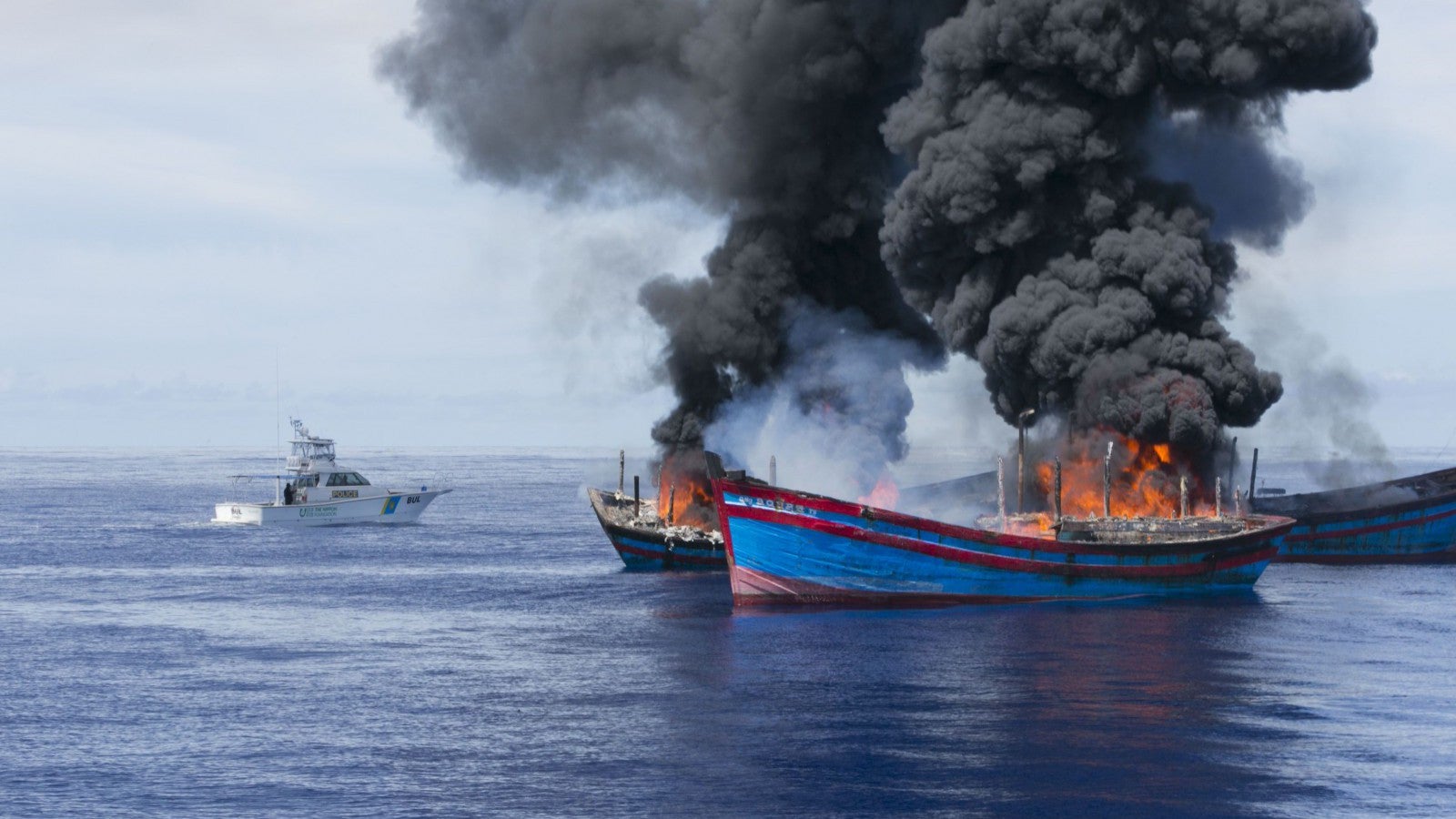A small Pacific island caught foreign fishing boats trespassing—so it burned them at sea
In a deliberately fiery demonstration of their country’s commitment to protecting its territorial waters, police in Palau recently dragged four Vietnamese fishing boats out to sea and set them on fire.


In a deliberately fiery demonstration of their country’s commitment to protecting its territorial waters, police in Palau recently dragged four Vietnamese fishing boats out to sea and set them on fire.
The president of Palau, a tiny island nation in Micronesia, decided in 2014 to ban commercial fishing as a matter of marine conservation. Palau has jurisdiction over 230,000 square miles of ocean, and its plan to kick the world’s fishermen out of this area—indefinitely—garnered praise and also a good bit of skepticism. That’s cute, the international community collectively remarked, but Palau’s marine police only have one patrol boat.
Some policymakers suggested that by spurning the tuna industry, in particular, Palau might lose hundreds of millions of dollars in financial assistance from the US. (Under an agreement brokered in 1994, Palau receives financial and other support from the US in exchange for “exclusive and unlimited access to Palau’s land and waterways for strategic purposes.”)
Since 2014, Palau has captured 15 Vietnamese boats fishing in its territory. Taking a cue from Indonesia, which has destroyed 41 trespassing boats over the past several years, Palau on June 12 hauled four confiscated vessels approximately 25 miles (40 km) offshore (to prevent debris from damaging reefs, according to one report) to burn. The captains of the boats are in jail in Palau, and their crew members are being shipped back to Vietnam. The boats were caught with tons of shark fins, sea cucumbers, and reef fish collected from Palau’s ocean territory on board.
“We wanted to send a very strong message,” Tommy E. Remengesau, Palau’s president, told the Associated Press. “We will not tolerate any more these pirates who come and steal our resources.”